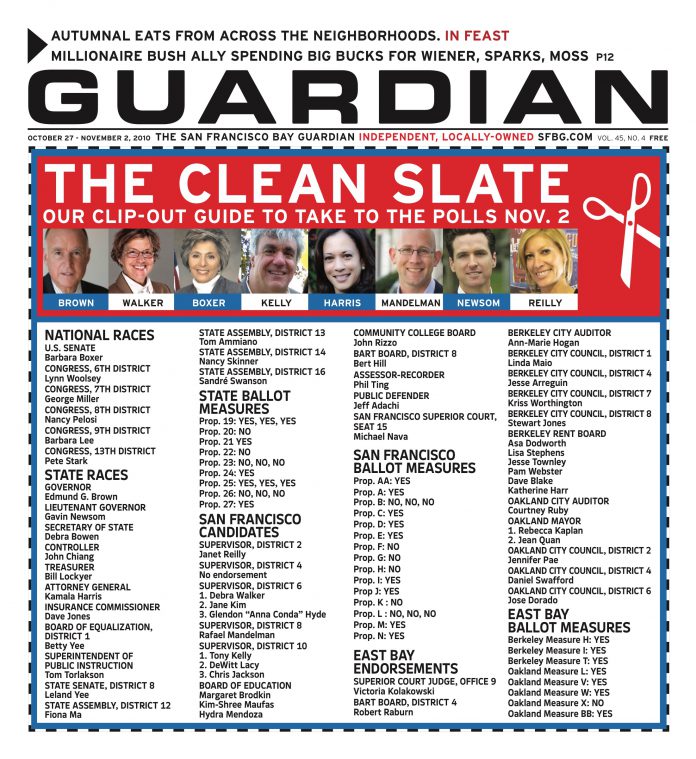arts@sfbg.com
I first stumbled upon Onra’s music three years ago when I picked up Chinoiseries (Label Rouge), a sprawlinlg beat-tape in the line of J Dilla’s blueprint for the future of hip-hop, Donuts (Stones Throw, 2006). But unlike the late Dilla’s many lackluster imitators, Onra proves a worthy disciple.
Chinoiseries‘ crackling intro blends hip-hop quotables over boom bap percussion, closing out with Dilla’s signature rally call, “Let’s go!” But the transition into “The Anthem” is unexpected: a bass-heavy break anchors unfamiliar horn blasts and traditional Mandarin vocals, unsteady and fissured in odd rhythm. What follows are 30 head-nodding beats culled from late 1960s and early 1970s vinyl straight outta dusty Saigon crates — some Vietnamese, some Chinese in origin. The effort certainly takes cues from RZA’s eerie psychedelic architectonics for the Wu-Tang Clan, in which he transformed Staten Island street sagas into a Shaolin kung-fu epic, but Chinoiseries is more furtive and gargantuan, scattered and undigested.
Onra, or Arnaud Bernard according to his French government papers, isn’t your typical Parisian hip-hop producer (whatever that is). He was born in Germany to a Vietnamese father and French mother and moved to France at a young age. He spent summers in the Ivory Coast where his mother lived and listened to the Caribbean polyrhythms of Zouk. But what initially hooked Onra to the beat was early 1990s American hip-hop. “I never really liked music before hearing my first rap song,” Onra tells me over an extended e-mail correspondence. “I was like, ‘This is it, and anything else is garbage.’ I had this state of mind for a few years before opening to other genres.”
Travel permeated Onra’s early life, and hip-hop gave him a common language with other wayward teens searching for a sense of themselves. “Through hip-hop, it has always been easier to connect with people because we share the same passion. So we’re pretty much on the same wavelength — at least, we speak the same language,” he says.
What makes Onra stand out is a talent not only for exploring the semantics of hip-hop’s codified scriptures, but its heavily layered emotional fabric. The MPC sampler/sequencer is his weapon of choice for recontextualizing sonic histories and mythologies. I’d even go so far as to say that he usurps tools of hip-hop to ground a sense of place in today’s widespread diaspora, where traditional and modern, distant and far, the animate and artificial grind against each other in sometimes uncomfortable, and unsalvageable, ways.
Earlier this summer Onra dropped his strongest effort, Long Distance (All City), which he considers his full-length debut. The record, a thoroughly futuristic approach to early 1980s boogie funk, helped propel the wave of recent revivalism for the genre heralded by Los Angeles’ Dam-Funk. Locally, the Sweater Funk crew has steadily unearthed overlooked boogie jams, playing original vinyl of low rider grooves and synthesized soul in the basement of Chinatown’s Li-Po Lounge every Sunday night. Somehow the cheese factor of these sounds has retained its original funky odor, and even rampant irony has given way to wholehearted appreciation for lustful forays into buoyant bass and lush melodies.
But Onra’s approach to the funk gathers inspiration from Notorious B.I.G.’s Mtume-based “Juicy” and Foxy Brown’s “Gotta Get You Home” more than the analog-minded heritage channeled by Dam-Funk. “There were so many songs in the ’90s that sampled ’80s funk and modern soul,” Onra says. “That’s the feeling I wanted to have on my album. I had to find a way of recreating their feeling, but with a fresher touch.” Long Distance manages that tension well, navigating nostalgia for Roland chord progressions and vintage drum machines with a finger on the pulse for the spacey beat-futurism cultivated by the likes of Flying Lotus and Hudson Mohawke.
The rolling bass lines of “Comet” and “Rock On” pick up where Parliament’s mothership landed 30 years ago — but the rusty funk machine scrapped together during the days of the cold war gets a bit of a facelift on Long Distance. The swerving slap bounce is reconfigured into a fragmented narrative of sensual ideas and indulgent desire outlined in chalk. On “High Hopes” and the title track, R&B crooners Reggie B and Olivier Daysoul wax seductive over woozy beats that sound like Dilla flipped the Prelude vaults.
Voices are distorted and guzzled through technological mediation: “Oper8tor” receives the vocoder-inflected Zapp treatment and “Girl” traces a love interest’s absent-minded confession over a fuzzy telephone voice message. Onra also ventures into uncharted intergalactic territory. “Wonderland” cruises on ecstatic altitudes higher than the intoxication of house, while “WheeOut,” featuring Buddy Sativa wilding out on synth chords, discovers the sticky underbelly of electro.
A general theme of travel, and the insatiable desires that emerge from such trips through space and time, saturates the warm sonic textures of Long Distance. Onra doesn’t care to divulge too much on the topic: “I have been traveling a lot these past few years,” he says. “This album has been inspired by my own personal experiences, by a few long distance relationships I had … I think it’s a very inspiring subject.”
I would dare trace the notion of distance back even farther, to the very impulse of Onra’s stylized hip-hop production. Whether seeking out some sense of imaginative rootedness across disparate traditions and backgrounds in Chinoiseries and other beat-tapes, or the heart of expressionistic eros in Long Distance, a sense of absence drives Onra’s work. But he doesn’t get lost in mournful nostalgia for a lost past and places already visited; some sort of dreamy future — a strange horizon where the erotic and robotic merge — seems to rise from the rubble. Desire might just find what it’s been looking for.
ONRA
With Buddy Sativa, Sweater Funk DJs
Fri/29, 10 p.m.; $10
SOM
2925 16th St., SF
(415) 558-8521

